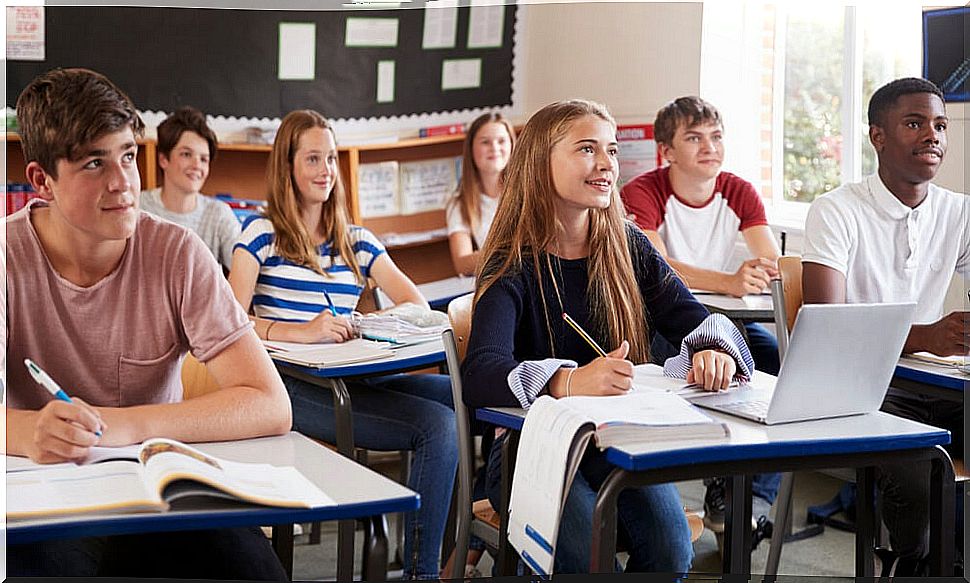Vocational Counseling Programs For Students

Career and career guidance is a structured process that helps young people to alleviate the uncertainty associated with the future they can choose. Currently, there are a wide variety of career counseling programs for students. These are usually applied in educational centers, especially secondary schools, in order to achieve the best vocational development of students.
In this sense, they are provided and explained all relevant and necessary information so that, after evaluating their own experiences and the contrast with the work environment, they can come to make a realistic and effective decision, in relation to the professional training that want to perform.
Vocational counseling programs for students
Today, there are a wide variety of programs that guide students in career counseling. These are based on a self-learning of vocational behavior comparing it with that of a professional group, among which are:
- Humanistic (humanities and culture): anthropologist, archaeologist, philosopher, historian, writer, journalist, translator, etc.
- Psychopedagogical (help and education): teacher, psychologist, pedagogue, occupational therapist, social worker, etc.
- Socio-legal (society and legislation): lawyer, judge, politician, sociologist, etc.

- Economic-business (economy, business and commerce): accountant, business manager, publicist, administrative, etc.
- Biosanitary (health and life): biologist, podiatrist, pharmacist, physiotherapist, etc.
- Scientific-technological (natural sciences and their technological transformation): computer, chemical, physicist, optical, astronomer, mathematician, architect, etc.
- Artistic (fine arts and plastic expression): actor, dancer, composer, musician, decorator, etc.
- Sports (physical activity and sports): referee, coach, sports coach, etc.
- Security (defense, security and army): security agent, police, military, etc.
Thus, one of these vocational counseling programs for students is the Vocational Counseling and Self-Help System. Here we explain what it consists of and how to put it into practice.
Vocational Self-Help and Counseling System
The Vocational Self-Help and Counseling System is a semi-closed system of self-help and counseling through which the student learns the essential aspects of his vocational behavior.
For this, materials are used that allow autonomous work. In its original version it consisted exclusively of materials on paper and pencil support. However, currently, it is marketed in computer support, adapting to new times.
This program is designed to be self-administered, since they simply consist of covering or answering a series of questions following the instructions that are indicated.
It is also self-correcting. So the student must check the successes and calculate the results, based on specific templates of the vocational group to which he belongs.
In addition, it is the young person or adolescent who performs the own interpretation of the scores obtained. Thus, it is achieved that the student carries out significant learning throughout the entire process, enhancing:
- The responsability.
- Commitment to your experiences and decisions.

Structure of the Self-Help and Vocational Counseling System
Thus, the Vocational Self-Help and Counseling System is structured in seven phases. The first three are mandatory to obtain vocational information, while the other four are optional:
- Phase I. Vocational development: it is formed by vocational interests and professional preferences. In addition, it includes its evolution over the years.
- Phase II. Vocational cognition: captures the way the student himself sees the professional world. Analyze what he thinks of him and how he structures his ideas about different professions.
- Phase III. Vocational motivations: it is the analysis of what has been done. It contains the expectations, self-efficacy, about their school and vocational experiences.
- Phase IV. Indecision: expresses the degree of discomfort when making decisions. It informs of the subjective state of the student and warns of the need or not to receive specialized help.
- Phase V. Basic study skills : focus on skills that are tested on tests of intellectual ability.
- Phase VI. Culture and knowledge: it is an estimate of general culture, in science and humanistic content.
- Phase VII. Decision-making: integrates the most relevant information from each phase and treats it as an assessment of the Vocational Situation.










